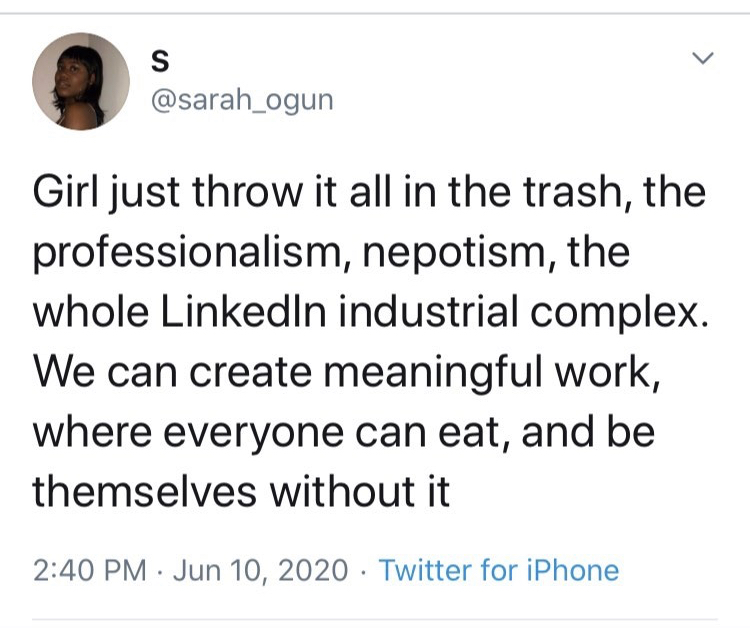The commitment to decolonizing…
Rodríguez’s piece underscores a central theme in neoliberal conversations of colonization. Decolonizing means that we rid ourselves of the notion and responsibility of race. We are no longer different, we’re all one, but in being one we all adhere to the same standards: those set in place by the colonizer before race got eradicated.
In reality, decolonization is a challenge to create new systems in light of historical oppression. It’s an opportunity to live devoid of societal conceptions that have ignored the nuanced reality of oppression, disenfranchisement, and the insidious nature of privilege, i.e. rewarding professors for attending conferences of publishing without establishing mechanisms and providing resources that make publishing and conference attendance a likelihood for all academics and faculty members regardless of background or university-type (i.e. waving fees, providing transport, having a readily-available resource board of journals looking for papers).
This week’s reading reminded me of a tweet I stumbled upon at the height of protests last summer. The tweet suggests an alternate reality where we give up on key components of our modern corporate scheme, i.e.: Linkedin, competition, nepotism. The tweet’s writer doesn’t challenge the system to let up on these things, but to give them up entirely, thus making them obsolete and contextless.





Eve, I’m not sure that I’m reading your first paragraph correctly. When you say: “Decolonizing means that we rid ourselves of the notion and responsibility of race. We are no longer different, we’re all one, but in being one we all adhere to the same standards: those set in place by the colonizer before race got eradicated.” —are you saying this is the neoliberal definition of decolonizing? Is “decolonization” in this definition standing in for the concept of a “post-racial” society, or is it something different? I’d like to push on this a bit more. *Is* there a neoliberal definition of decolonizing? (Like, is the concept of decolonization even something that is desirable in a neoliberal context, under any definition? Is it even legible?)
To continue pushing further—is it enough to build new systems? What about the land that I’m on, and the people who have been displaced? Part of what I want to explore tonight is what kinds of terms ‘decolonization’ might be standing in for, depending on who is using it and why. I don’t know that I have answers, just lots of questions.
Hi Katina,
The first paragraph was a facetious telling of the Neoliberal position– a type of insouciance I feel Rodríguez is responding to. Perhaps the idea of de-colonizing does not exist in the neoliberal lexicon, and it isn’t a term that can be used interchangeably with “post-racial.” I was more trying to capture the rush to rid oneself of guilt and shame when a part or piece of history is brought up– the idea that acknowledgement is enough and can be resolved with uniform conduct, that I ultimately believe will represent those in power by virtue of being “standard.”
In relation to your questions about new structures in the face of historical wrongdoings (we are, after all, on Lenape land), I don’t have an answer either, but I can’t help but think of the op-ed published by the CEO of Planned Parenthood the other day. While it isn’t the best piece (she dedicates an entire paragraph to the concept of “Karen” which I think takes away from the complexity of her discourse), she does honestly contend with Margaret Sanger’s racist conduct, being sure never to label her as racist but to acknowledge that it’s a call to absolutely do better in the future.
See the piece below!
https://www.nytimes.com/2021/04/17/opinion/planned-parenthood-margaret-sanger.html
Thank you,
Eve
Eve,
I’m having some trouble tracking your voice in this response (I think this is a matter of tone or use of irony, but I feel like I’m not hearing what you intend for me to be hearing). So I think hearing your actual voice in class tonight will be especially helpful.
Matt